Hitting the Vegas Buffet: An Interview with Mark Rosewater
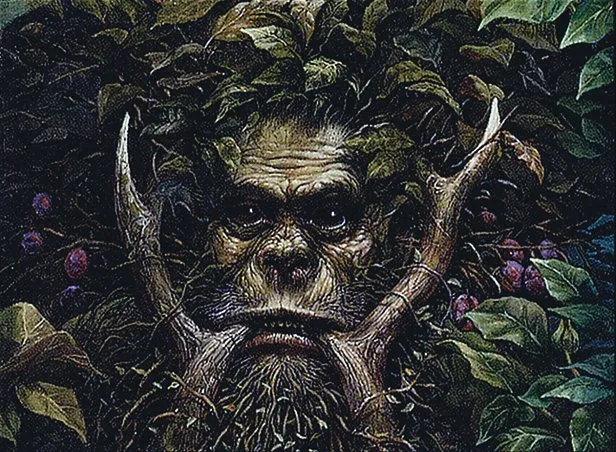
Maro | art by Stuart Griffin
LAS VEGAS -- Vegas is known for a lot of things, but in recent years, it's garnering a reputation among Magic players as one of the premier destinations for annual Magic Cons.
And last week was no let-down on that front. Three days of Magic in the desert has concluded now, but not before Commander's Herald reporter Nick Wolf, along with editor Morgan Sanchez, had an opportunity to sit down with legendary Magic Head Designer Mark Rosewater for an off-the-cuff conversation about where Magic has come from, where it's going, and why it's more similar to a Vegas buffet than people might realize.
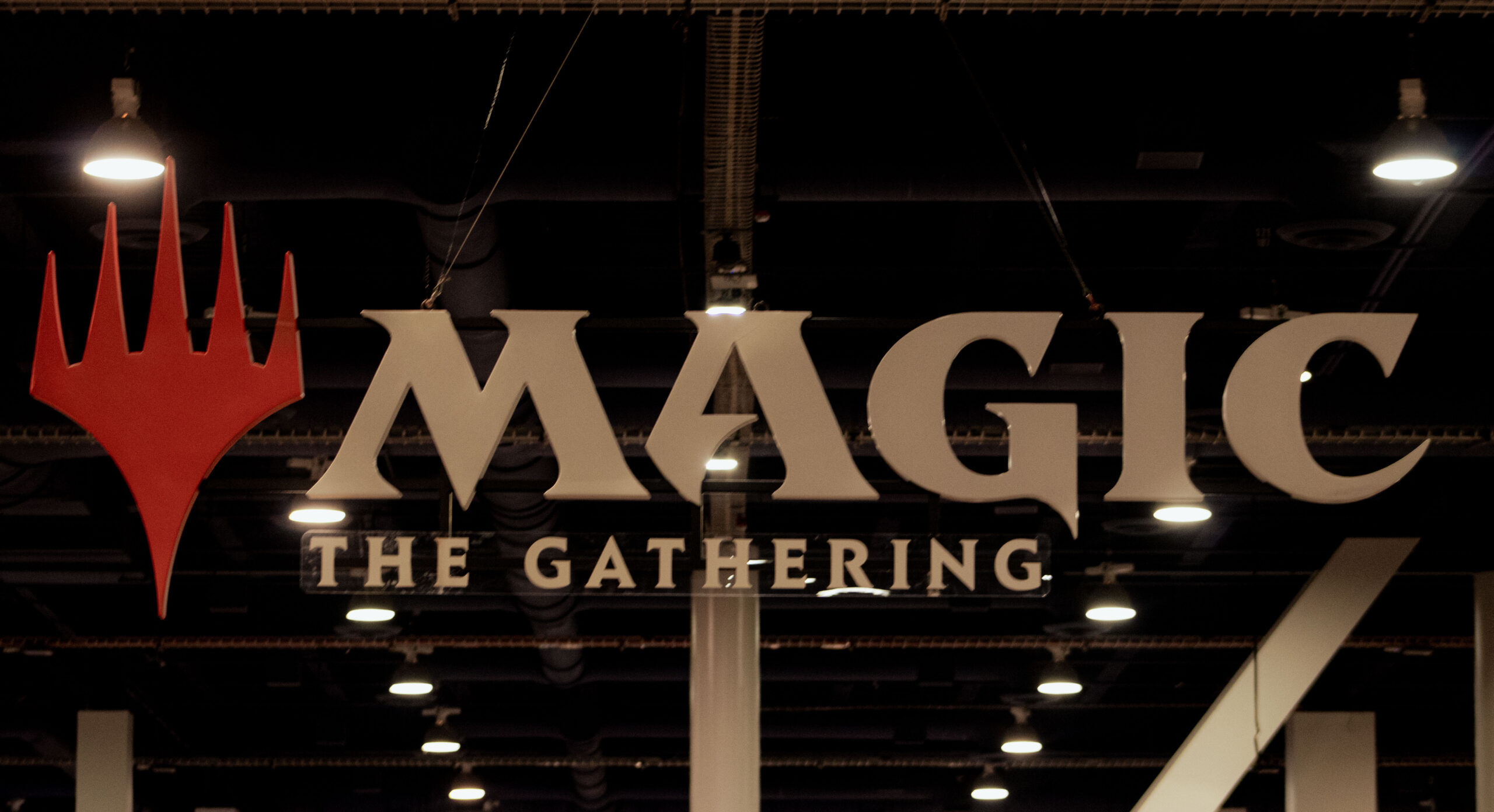
NICK WOLF: I remember a couple years ago you had said that you estimated more than 75% of Magic players don't know what a Planeswalker is, don't know who you are. All that. Do you think that that's still accurate, or you think that number is maybe even risen in the past couple years?
MARK ROSEWATER: I'm not 100% sure. So the thing that most players have to understand is that, I think most people that are more part of the Magic community are franchise players, and to them, Magic is what we call a lifestyle game, right? It's part of your identity. It's something that you do your social circles revolve around. I mean, it's very core to your identity. But for a lot of people, Magic is just a game they own that is on their shelf. Maybe one time they play Scrabble, next time they play Monopoly, and then they play Magic.
And the thing I'll sort of say is, think about how you interact with, like, picking up a random game on your shelf, you know, like, let's say every once while you play Scrabble. Are you online talking about Scrabble? Are you looking at websites about it? No, not necessarily, and that's a lot of players for Magic. It's just a game.
We are more aware of the "enfranchised" people. These people that are, like, actively about Magic are online and, you know, content creators and stuff like that. And that group does the lion's share -- I mean, while they are a minority of people, they're more than the majority who spend like that -- the people who spend the most on Magic are obviously the most "enfranchised" players.
The idea to people that the breadth of experience from Magic is one end is super, super involved, and the other is, "hey, it's the thing I have," and, you know, maybe they play it once or twice a year. But that's the idea.
It's hard for us. When we do most research, the way we do it is we put (surveys) on our website But then we're getting people who come to our website, and that is sort of self selecting. So I think every other year we do something we call a "deep dive." And what a deep dive is is you call randomly. Call someone on the telephone and say, "Hey, how you doing? I'm doing a survey."
Well A, they have to do the survey. And B, you ask a question. "Hey, have you ever played the game Magic: The Gathering?" If they say no, you go "Thank you so much for your time."
But if they say yes, you ask more questions. And the idea of a deep dive is we're just finding random people. I mean, it's expensive because it's not the most efficient way to find Magic players, but what it does is it finds people that you would never find anywhere else. That's where the stats (like the 75% from above). We will find people in that pocket who, like, are you a Magic player? "Yes." How often do you play? "I don't know, twice a year." That's what we find, those people that we're never going to find on our website.
NICK: I think that's something that, from our perspective we try to keep in mind, because most, if not all, the people coming to our websites are those enfranchised players.
MARK: Your websites (EDHREC, Commander's Herald), by the very nature of them, they're like -- (a player) knows enough that, like, "oh, there's a documentation of all the different commander decks or articles." And that's a high level player who knows something.
NICK: I think it kind of behooves us to make sure that we keep that in mind, that there are those players out there, who are the majority of players, and they're not the people who might come to our websites independently. We try to figure out a way to be able to reach out and welcome new players, and I'm hoping that Foundations is a good way to do that.

MARK: Yeah, that's part of a couple different things. Whenever we reach out, we spend a lot of time and energy talking about the new acquisition (new players), right? They don't play Magic, and now they play Magic. Another really important part is two things. One is what we call "re-acquisition," meaning, "once upon a time I played Magic, I got out of it," and we get you back into playing.
But the third category is the "upgrade." Well, "I play Magic super informally, I'm technically a Magic player that has played Magic the last year." Okay, yes, they played Magic, but they're not the "enfranchised" player. And a lot of what we want to do is to convert you from a very infrequent Magic player to a more frequent Magic player. So the beginner products do all those things.
There are a lot of different goals and things that we tend to focus a lot on the new player that's never played, and we're getting them to play.
NICK: Are there any releases or products in the past couple years that have had more success with helping players make that jump from casual to enfranchised?
MARK: Usually, the things that are most successful are just sets that are generically more popular. This year, Bloomburrow, for example, did a very good job of just having a very approachable theme. It was very beginner friendly, or even if you were someone who played Magic but casually, it drew you in. You'd hear about and go, "Oh, that. I'm interested in that."
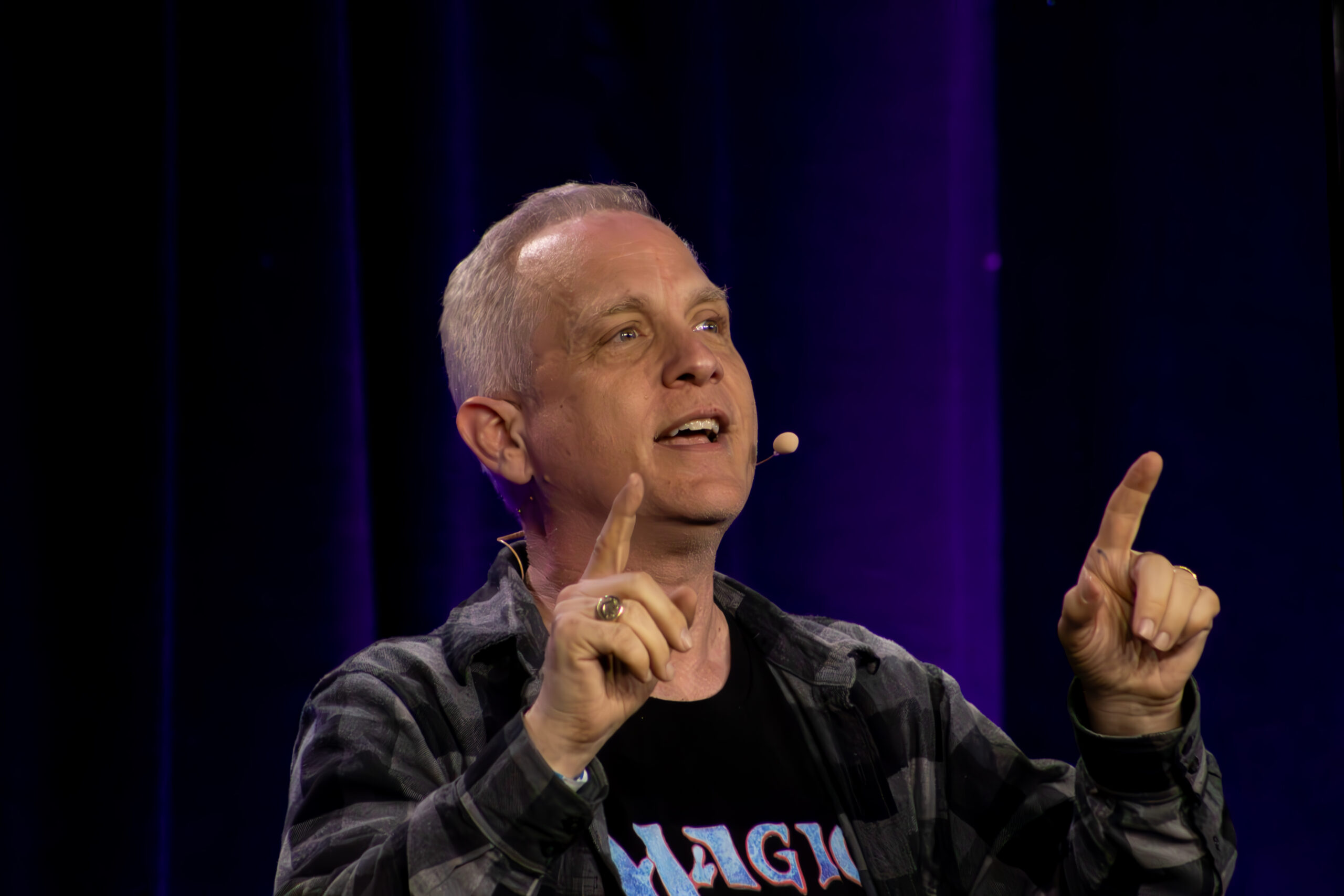
NICK: It definitely did seem to hit on a level that was more universal for a lot of people. And Magic's been around for a long time -- are there other games and franchises that have been around for a similar time that, during design, you look to, to see what they're doing to maintain their long-term health?
MARK: Dungeons & Dragons is at Wizards of the Coast, and we can share information with Dungeons & Dragons very easily. There actually aren't a lot of games (as long-lived as Magic), especially games that are making new content. There's really a handful of games that, like, as old as we are and still make new content.
But something we always do is look. We look at everything. If there are new games to make sure we understand what games there are and what people are doing. And you always want to learn from the "old timers" who have been around forever. Well, how are they still around? And the newcomers who really seem to be making a scene, what are they doing?
And that's in any field. You want to look at other people doing what you do. And there are definitely upgrades and things (that have happened in Magic as a result) over the years. Like, for example, Magic came first, and then I remember, we one point said, "Okay, let's look at other trading card games, because it's spawned a whole bunch of trading card games." And we discovered was we were the only trading card game of any of the bigger ones that had only three rarities. And that's one thing that inspired us to make mythic rare. Like, "Wow, you know, like, if of everybody following us, nobody's doing that, why?" Players like that aspect of a collectible. People like to have something to chase. So we added a rarity that didn't show up in every pack, but that showed up one in every seven or eight packs.
NICK: So conversely, being one of those more famous, long-lived games, do you ever think about how all those other games are looking at Magic as a guide?
MARK: There's an article I want to write if I've ever find the time: all the different games that were inspired by Magic. Like, there are definitely deck-building games inspired by Magic. There are drafting games inspired by Magic. There are people that say "I enjoy Magic, and I mostly like this little piece of it, so I'm just gonna make a game out of this little piece of it."
There are a lot of games like that. There is a whole lineage of that, and even the people who created the game are like, "Hey, I was inspired by Magic." It's not a secret or anything. It really is healthy. Magic has spawned a whole subsection of game design. So it's really interesting.
NICK: Do you ever get anybody telling you that Magic has inspired them in realms that are not game related?
MARK: Oh yeah. (laughs) I do a lot of game design talks, so I get people all the time talking about how they take the lessons of Magic and they apply it to other fields completely. There's something about the way that Magic works.
One of the cool things about Magic is with most games, when you play the game, the game is the game. I'm gonna play Monopoly. Open it up. There's a board, there's pieces, there's play money, there's cards for the properties and some plastic hotels and...that's what it is. And everybody plays that. That's exactly what you have.
And there are a handful of games, and Magic's one of them, where as Richard Garfield used to say, was "bigger than the box." And the idea is you will open up the game, and you'll get some of the game, and then you can go get whatever you want and build what you want to build. But the idea that the game is bigger than that, that's a very unique part of it. I mean, there are other games that do that, but not a lot.

MORGAN SANCHEZ: That multifacetedness of Magic is always what has kept me into it. If I don't want to play right now, I can go see the artists, I can collect cards. Or, you know, I just happen to like the shiny thing. So I think that that's definitely something that helps with keeping people enfranchised, too. The "game system" of Magic makes it so much more fun and easy to slot in, for example, these Universes Beyond releases.
MARK: Magic is, in some ways, more of a "game system" than a game, in that we have a rules system, we have pieces and there are infinite things you can do with it. The game's just very adaptable, and a trading card game lends itself to that. So one of the things that I think is very compelling about Magic is you (the player) get to be a game designer. For most games, the game is a game, but Magic says, "no, no, you make it whatever you want it to be."
If you want to build a deck full of Elves, because you think it's cool to have Elves, you can do that. You know, if you want to make the most competitive deck and go play on the Pro Tour, you can do that. It gives you a lot of different avenues and you have so much control over what it is.
I think Magic spawns a lot of things and inspires a lot of people. It's learning that you could have control over something that just makes you go, "Oh, I could have control over other things. Like, I could do this." That mindset, I think, is really valuable.
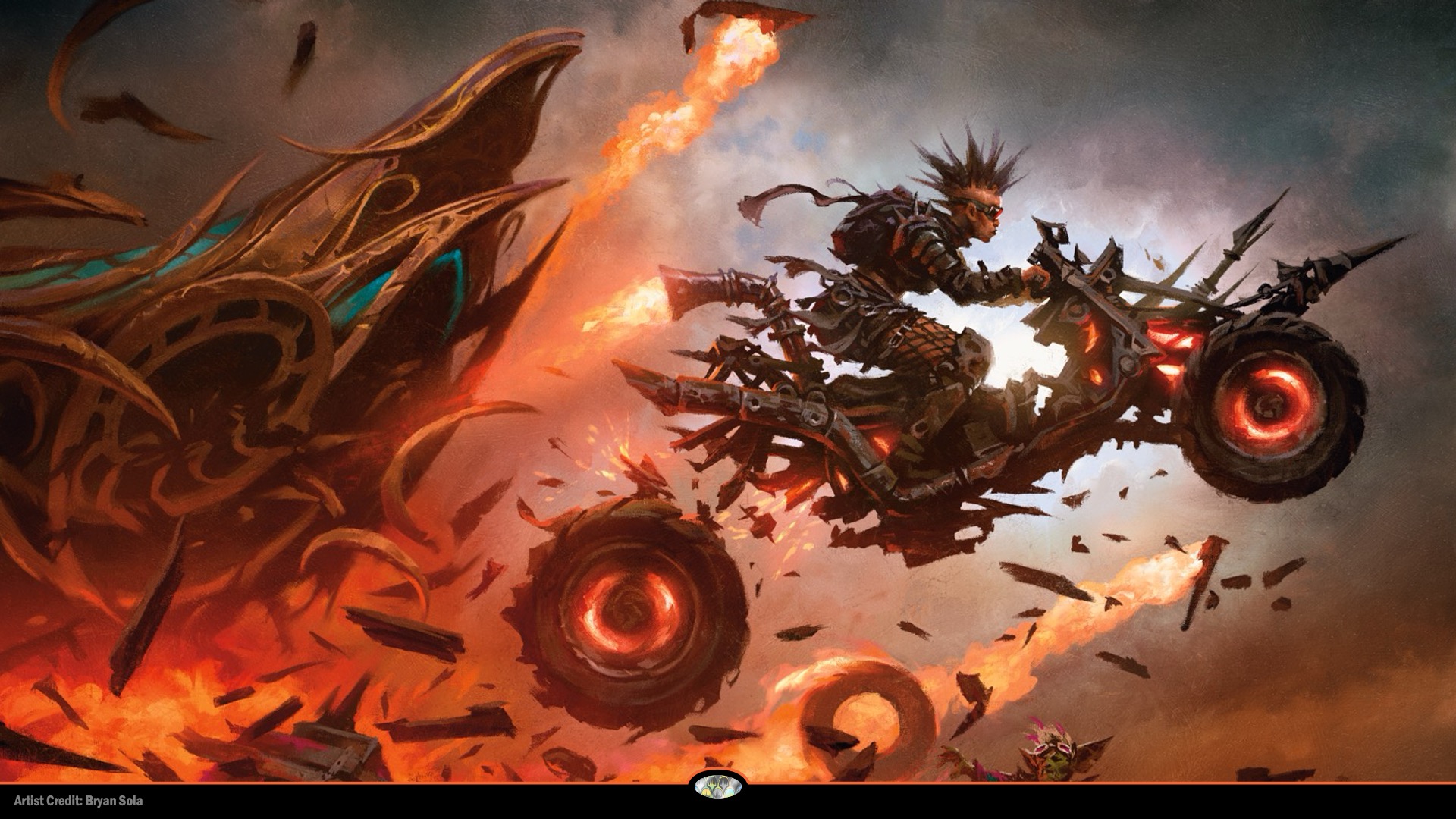
NICK: With everything that's going on this weekend, particularly all the different panels and announcements, it's got me more interested in the "long view" of Magic. I started in around '97 with Tempest, so for me, it's been a part of my life for 20+ years. That's what interests me more about Magic design -- the longevity of it, and how it's changed, but also how it's basically stayed exactly the same over the years.
MARK: Next week is my 29th anniversary of working at Wizards. So, that was 1995, and I started playing in August of '93 so basically when it came out. And it is very interesting to watch the evolution of the game. I was there at the very, very beginning, and have just watched it change over time.
And that, it's funny. I think of Magic as kind of being this force that, like everybody kind of influences it, but no one person makes any decisions. And that's kind of neat, that the group, players included, kind of decides what Magic is to a certain extent.
We as designers will try things. But then hey, does the group, the collective community of players, like it or not like it? And sometimes they do like it, and we do more and more of it, and sometimes they don't like it. For example, last year, we did a set called March of the Machines: The Aftermath, and the players were like, "We do not like that."
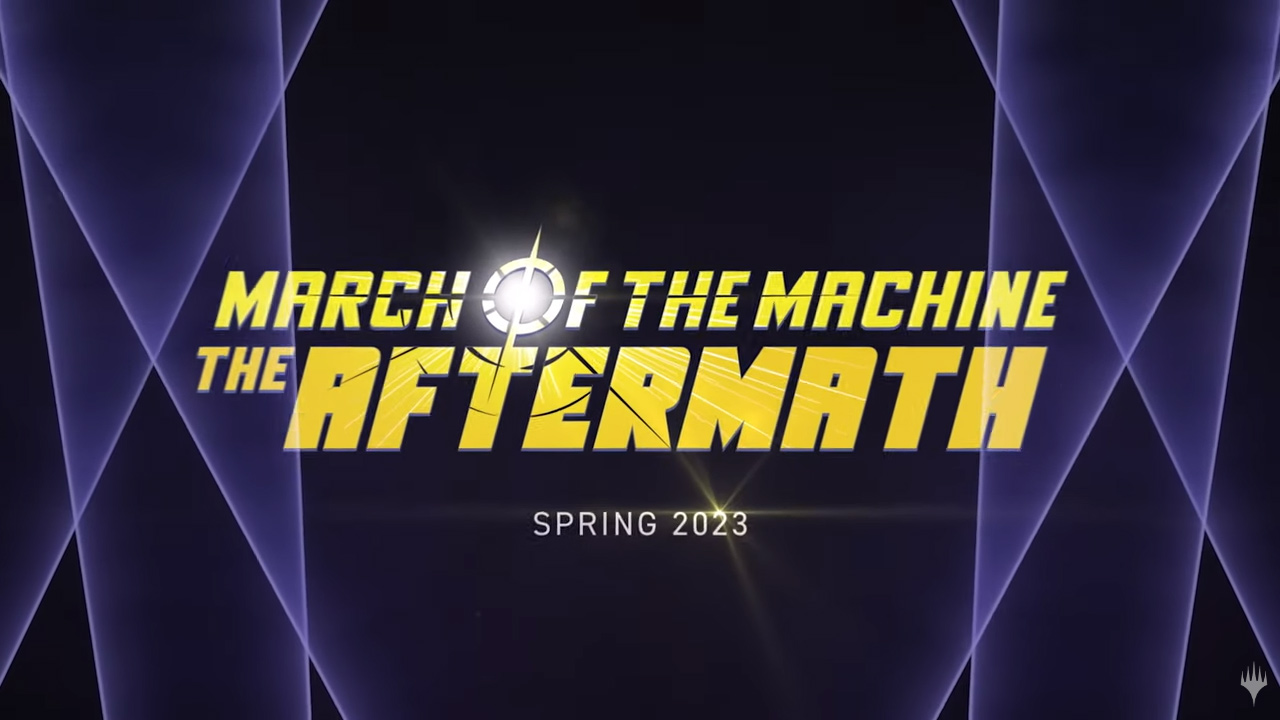
NICK: I know I'm in the minority, but I actually thought it was pretty cool.
MORGAN: I just love Phyrexia, so anything with Phyrexia and I'm there.
MARK: I like that. (laughs) We experiment. We try things. But sometimes, and on the flipside, there are definitely things that I've tried that at the time were very controversial. Like, double-faced cards, right? There was a lot of like, "oh, we can't do that," But let's try it? And then the players really took to it, and they really enjoyed it.
There's a great story where we were having a party at PAX where we'd invite all the press, and then we'd do a big presentation. So for industry, we showed, I think there was the bat that turns into a vampire --
NICK: Screeching Bat.
MARK: Something like that. We show the bat, and people go "...okay." And then we rotate it so you see the back. And people were like, "Oh...okay." And what we what we missed was that nobody understood that this card was literally back and forth. They're just like, "Oh, now you're showing us a second card." (laughs)
I had brought one in my pocket, so as I was talking reporters I'm like, "No, see, it's literally (mimes flipping a card around) It was so out there that no one thought, like, we would do that. So, like, they couldn't understand it.
That's the next thing about Magic, is we try things. Game design has what's called the iterative process, right? You try something, you get feedback, you adapt to the feedback, and then, you know, lather, rinse, repeat.
MORGAN: People have the expectation, though, that it's not like that, right? They think that you just immediately have the right idea, and then (if it doesn't work) it's like, what were you thinking? If it just ends up being something that everybody dislikes, it's like, well, didn't you guys think of X beforehand?
MARK: I have a blog where I answer questions every day, and one of the common complaints I get basically boils down to: "you're doing Thing X, I don't like Thing X. Please stop doing Thing X."
And then my answer normally is basically this answer: "I hear that you don't like Thing X, but we have a lot of data that say other players like Thing X, and so we're gonna keep Thing X, because these other players like Thing X. Don't play Thing X, Magic has 27,000 cards."
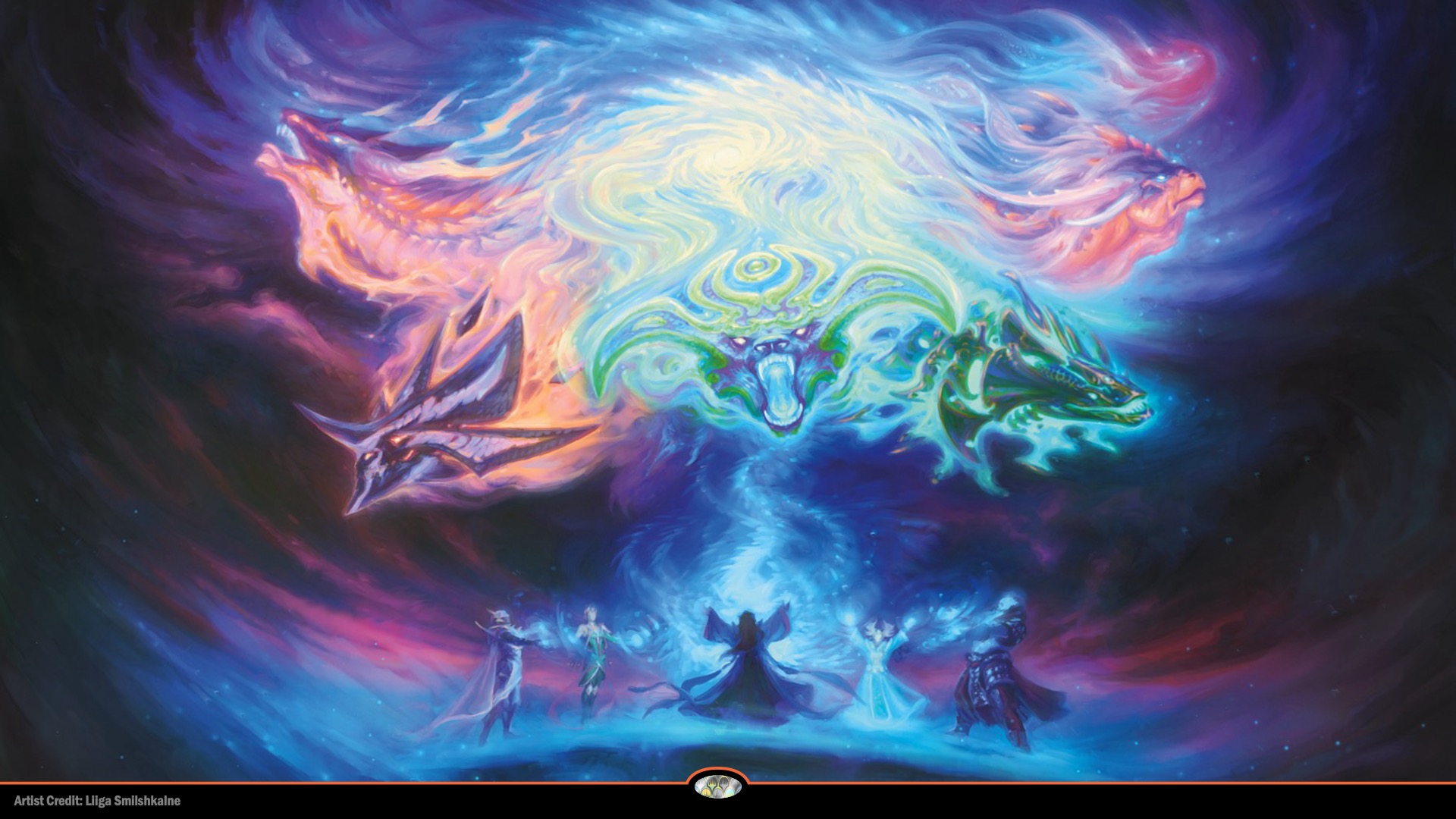
MORGAN: I think you said exactly that a lot in the past few days.
MARK: The thing that's really hard, from a game design standpoint, is Magic is not one game, it's many games. It's not one audience, it's many audiences. The challenge for us, which I enjoy, but it is a challenge, is it's not the same thing to everybody.
So we're trying to make everybody happy and Universes Beyond is a really good example. The data is crystal, crystal clear. There's a giant, giant audience for Universes Beyond. I get there are players that don't like Universes Beyond, I understand that. I'm not trying to belittle them. They have real feelings, and I understand the real feelings. But there's also a giant group of people that love it.
There's a metaphor I use about design. I said it's like we're making a buffet. How do you make a good buffet? You have a lot of food people like and so, hey, I'm gonna put in lobster. People love lobster, and they're happy. And for somebody else, I'm making mac and cheese, and for somebody else I'm making prime rib. Magic is good at the "additive," right? We can just add things to it. The problem happens when someone says, "Well, I don't like lobster."
And I can say, well, don't eat the lobster. And they're like, "But the guy next to me is eating lobster. I don't I don't like seeing him eat lobster. I don't like lobster. I don't like I don't like the smell of lobster."
NICK: I don't even want to be in the same room as lobster.
MARK: And that's the inherent problem, right? We are good at additive, but we're bad at subtractive. The only way to subtract something is to eliminate it for everybody.
When magic started, there was Ante. Ante used to be the default way to play, and the community, which I was part of before I worked at Wizards, hated it. I mean, hated, hated, hated, hated, hated it. And so we took it out of the game. Obviously, for anything, there's always a small group, they'll like it. But I mean, when 99% of people hated it, the other 1% are like, okay, get rid of it.
There's a point in which enough people don't like something, we're just not going to do it. But that's the hard thing, is it's really, really hard when people say "Magic means this to me. This is what I love about Magic." And us going, well, we're doing that, but there's something else we're also doing, and you're like, "but I don't like that other thing." Like, well, I understand that. Like your thing, but it there is someone who does like that other thing.
The thing I try to take away from Universes Beyond is like, there are people that don't like Bloomburrow; it's like, "too cutesy" for them. There are people that don't like Duskmourn because it's too modern. "I don't like seeing cell phones and TV screens. My fantasy doesn't have TV screens or whatever."
Anything we pick, any set, I mean, there's always something we've done where we innovated and somebody did go, well, "that's it, you've crossed the line." The reality is, I think where Magic has thrived is in that we try different things. And the vast majority of time it's like, okay, we've added something new to Magic.
And that is one of the coolest things about Magic: no matter what you like, you got it. You want to play horror, we got you. You want to play science fiction? We got you. You want to play with cutesy animals. We got it.
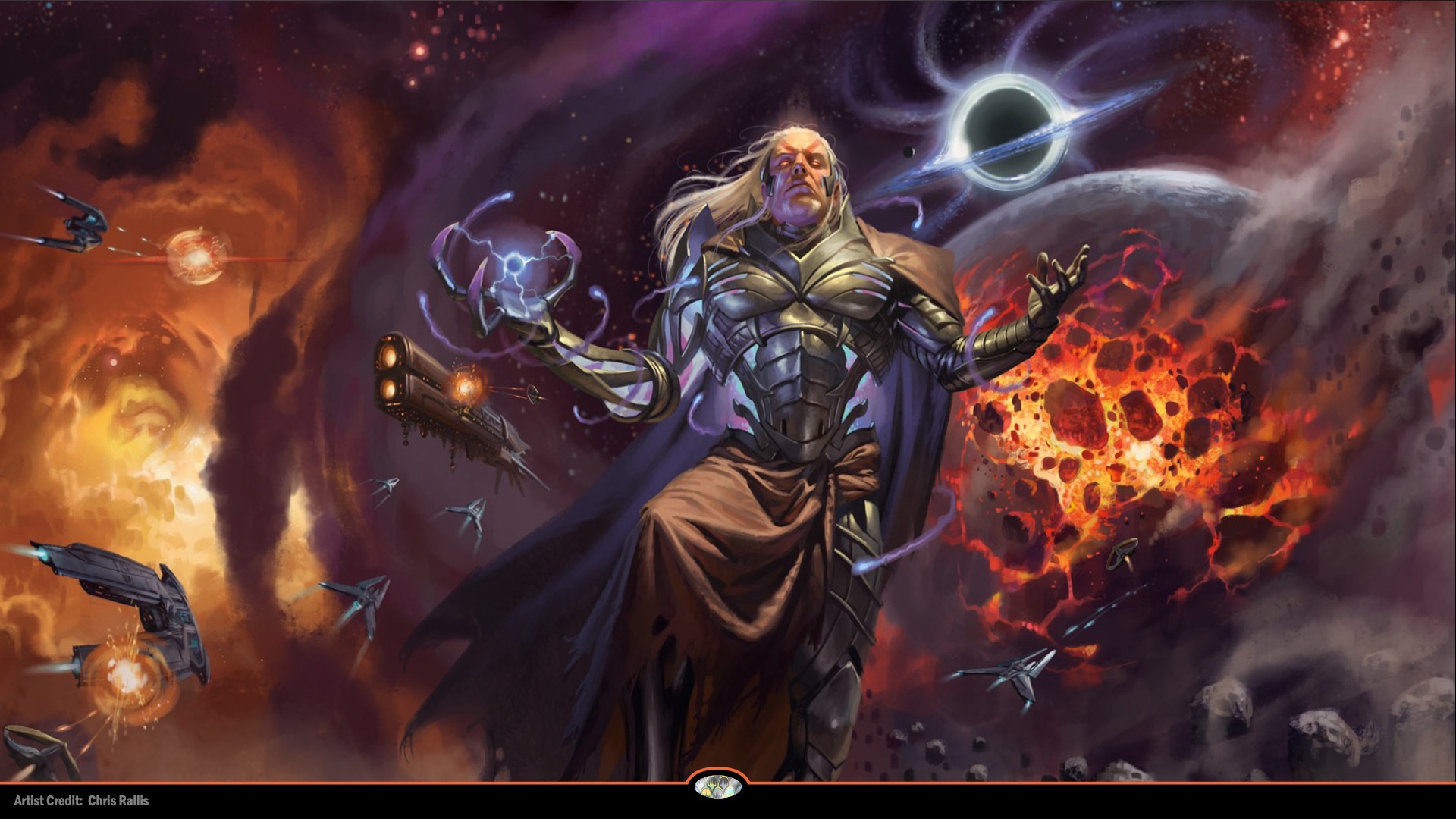
MORGAN: It's a buffet!
NICK: And if you want to pile them all on your plate at the same time, go for it.
MARK: Yes, and that's the thing. We have this buffet, but I definitely have a lot of critics who say "I don't like the buffet serves this thing," right?
NICK: The only real foolproof way to solve that problem is to just never do anything, and then Magic wouldn't have lasted as long as it has.
MARK: Exactly. I like to think of Magic as this living, breathing entity that keeps evolving and changing. That is the lifeblood of Magic. That is what Magic is. That's what makes Magic so special.
A good example is Commander. We, the company, didn't make Commander. It was just a casual format that some fans played and, like, it slowly gained some traction, and then we're like, "Okay, well, we'll make we'll make some decks." And that went like gangbusters. We started making more decks, and like, now it's the number one way for tabletop play.
So the game changes, and we adapt to it, but it's not what people seem to think in that we're leading so much as we're recognizing what's there and recognizing what people like, and we lean into what people like. When people like something, we'll do more of it, and we do try to innovate. I mean, part of my job as the Head Designer is, hey, what's something we've never done they might like? So we experiment. Sometimes players do (like the result), and sometimes they don't.
But the experimentation and the willingness to try, that's, what makes Magic Magic. It's so many different things, and we've been experimental, and we've done stuff, and I think that it's that is where Magic thrives; that it doesn't rest on its laurels.

NICK: I think some of the questions you might get on Blogatog tend to be very reactionary to that experimentation, reacting to this one thing happening right now.
MARK: This is true. We see this in young designers too, it's very easy to want to see the world through your world view. I mean, you see through your eyes, and you experience things. It's very easy to go, "this is the world as I experience it." But that idea is not a uniform thing. That's just how you experience the world, and it just isn't how other people experience the world. It's a good life lesson in general.
So a lot of people come to us and say "Hey, this is what Magic means to me," and they don't really take into account that Magic means other things to other people. If my blog has one theme, it's that other people play Magic too. They like other things, and we as the people who make Magic have to care about that.
I'm not a big fan of Commander, only because I like Magic a little more strategic. I'm not big on the politics and a lot of Commander is like, "Don't attack me." And that's fine, because there are people who love it. I'm not. But I don't want to not have Commander. I think Commander is great. I'm glad Magic has Commander.
In fact, as a Designer, I designed for Commander. I recognize that it's not my thing, but people are happy because they can play Commander. I don't want to take that away from them because I'm like, "That's not how I play Magic," you know?
That's that insight to getting people to understand that, like, hey, in some level, you're part of the Magic community. The Magic community is better served if all the people get to be where they want it to be. And that, yes, part of that means there are aspects that might not be your favorite you get exposed to, but then you get a community of people who like all different things. And that's part of the trade-off.
NICK: The sky is always falling for some reason or another. You know, it's probably been done before, but an interesting article would probably be "10 times Magic has died."
MARK: I have written that article, actually. It was called "20 Things That Were Going to Kill Magic."
From our end, I know that time to time, multiple times a year, there's some, you know, world-ending thing that happens, and everyone's all up in arms. And I always try to give them context. I'm like, "just be aware every time something changes, you know, and the game gets through it."
I've been in Magic so long now that I've seen time be circular, almost, in the way that it functions. We now can predict what the response might be (to an upcoming change) because we've done stuff this before. I've also learned I'll now write an article beforehand like, let's say we're gonna do something that I know is controversial. I'll write an article. I'll walk through our reasons why we're doing this, just because it lessens the shock a little bit. People go, "Okay, I see why you're doing now."
NICK: Then, the hope is that the people who might be upset by a change will read those articles.
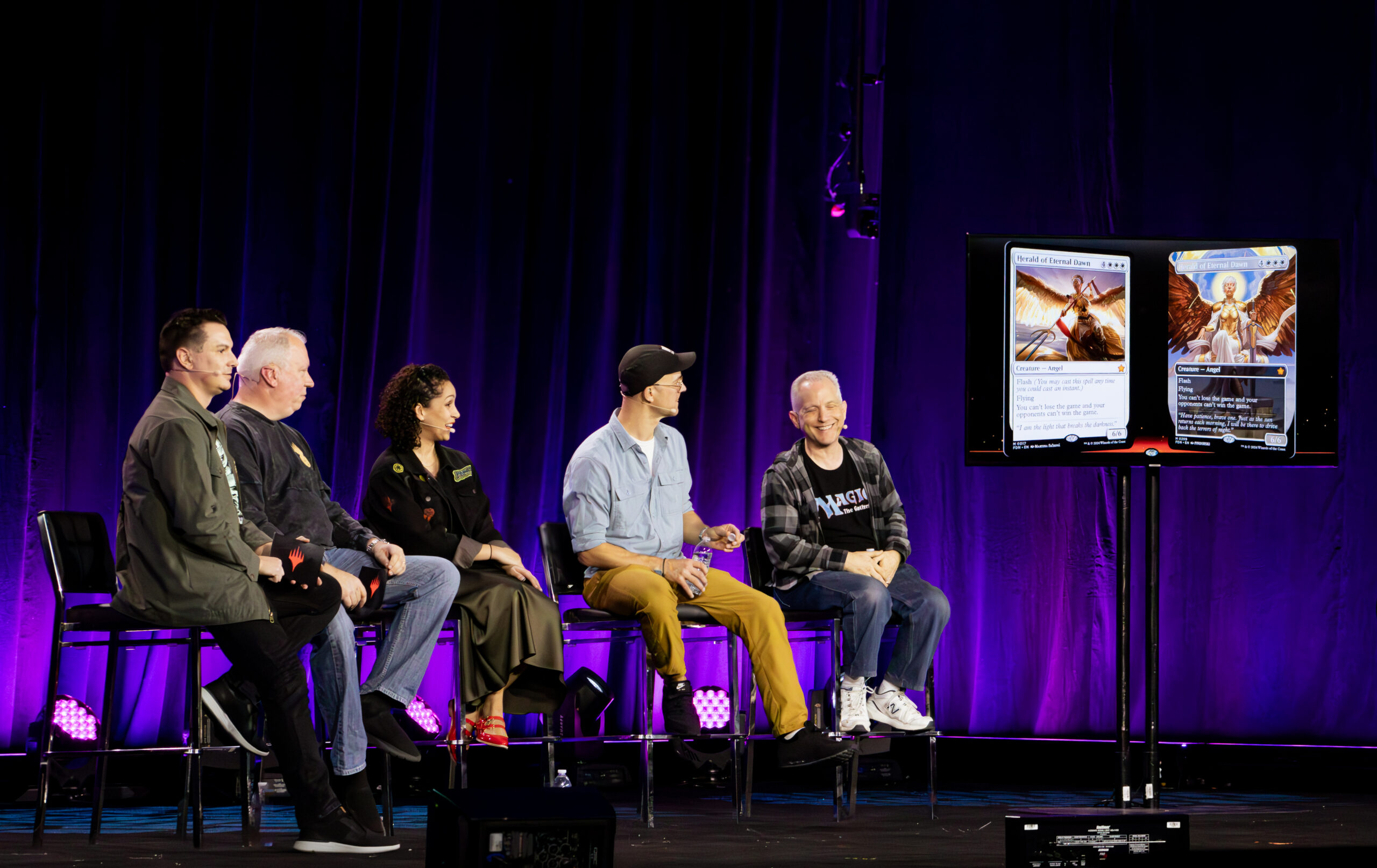
MARK: No matter what we do, any change we do, there'll be people who are upset. There's nothing we can do to make nobody upset. One of the reasons that I do my articles and podcasts and my blog and stuff is I honestly believe the more people who understand what we're doing, the happier people will be. Maybe the person who's mad at me ,when I talk to them I might not change their mind, but lots of other people are reading it, too.
And that's been the last couple days. I'm just trying to explain. Look, guys, I understand that there's a subgroup of people that really dislike the concept of Universes Beyond, I get it. I get it. I understand why they do. And I'm just like, "I need you to understand that there are people who love it."
One of the things about Universes Beyond is it's the best entry thing we've made. Like, one of the challenges about Magic is it's very intimidating, right? Magic is a complex game, what we call the "barrier to entry." Like, it's very intimidating to learn Magic. Well, one of the ways to get people in is to say, "here's the other thing you love." You can play a game of Magic with the thing you love.
And I've talked to so many people, who are like "The Lord of the Rings got me in and I played with Lords cards, and then I find out that oh, Magic is a really fun game." It's like, well, guess what? Now you can you can play other stuff, you know. And that one of the really cool things about Universes Beyond is this idea of, we can introduce a lot of cool things about Magic through something that you love, and that is super compelling.